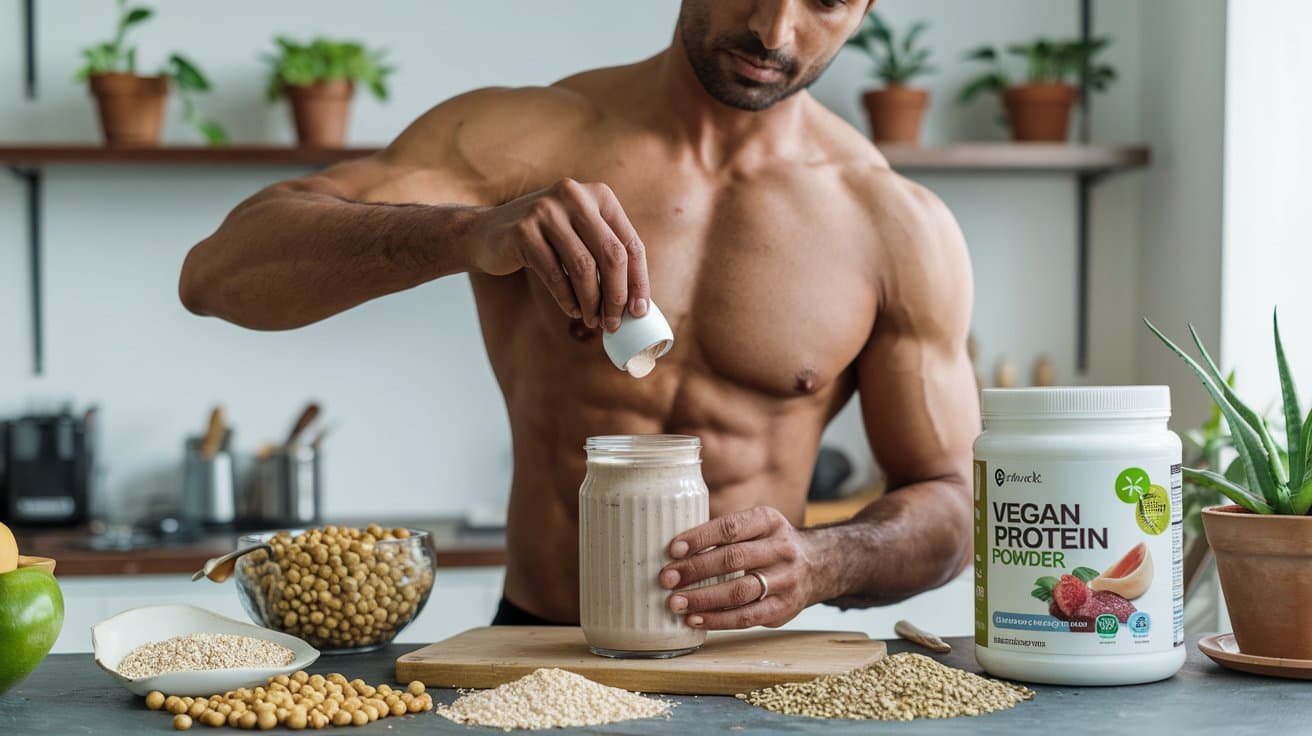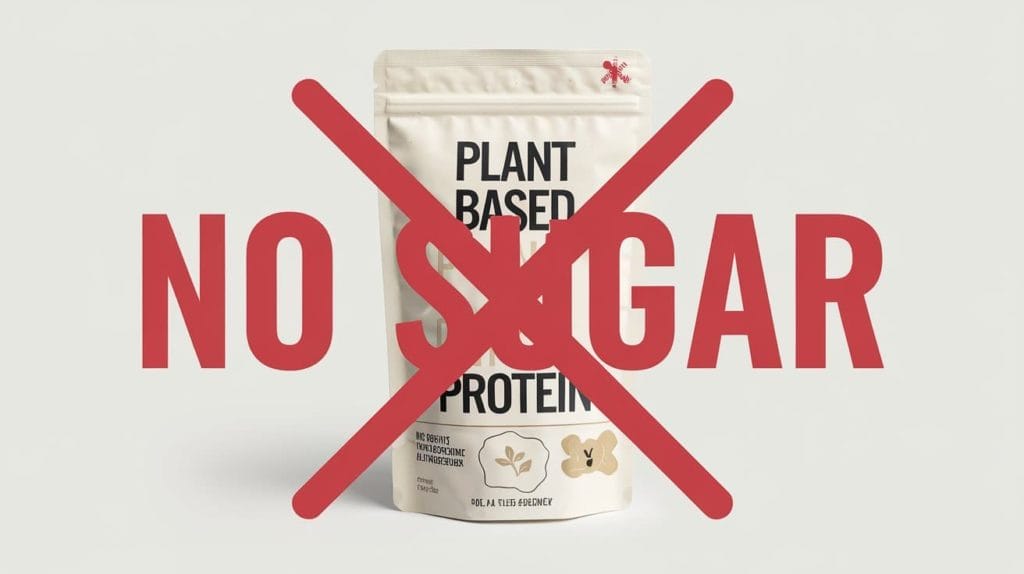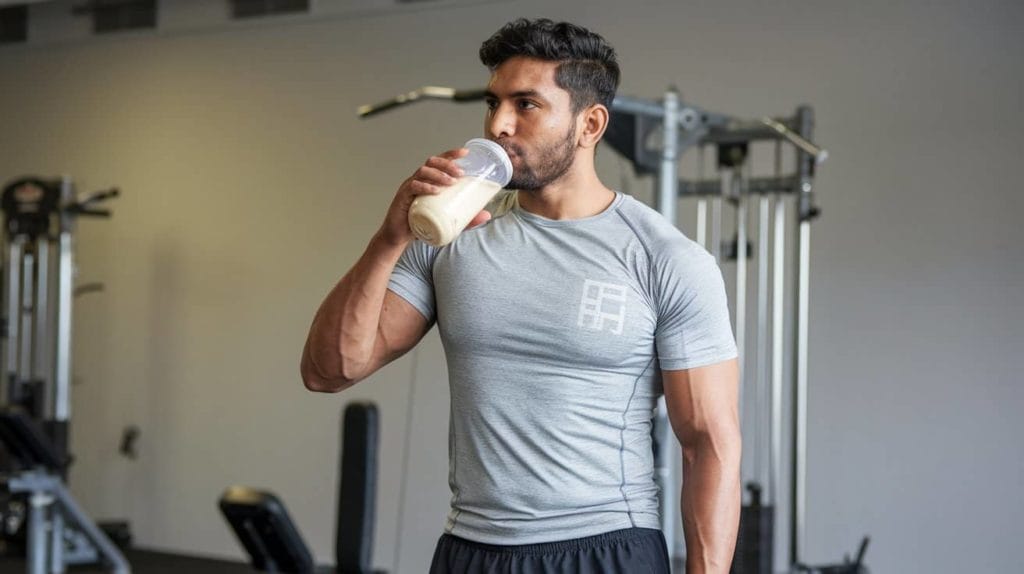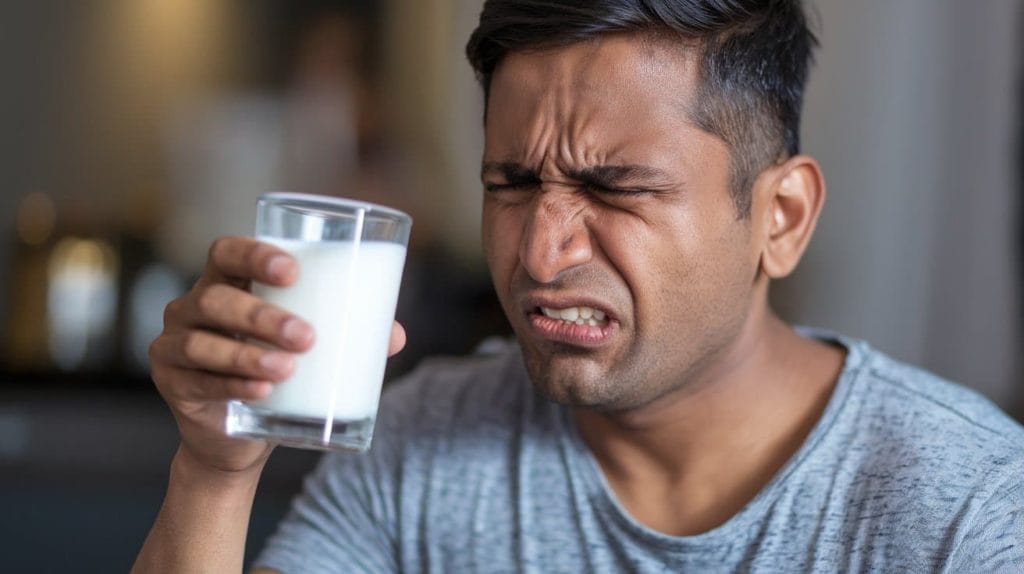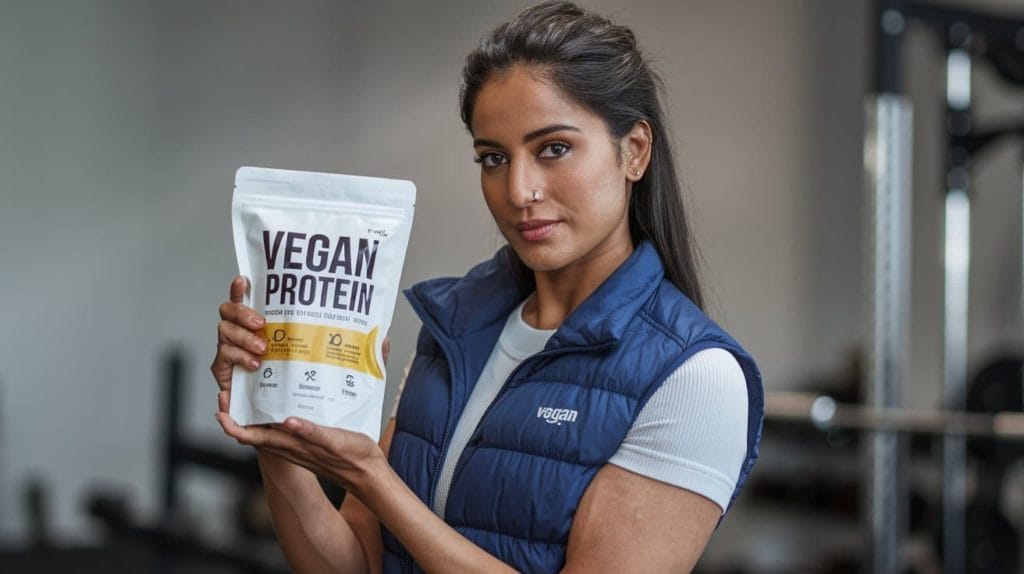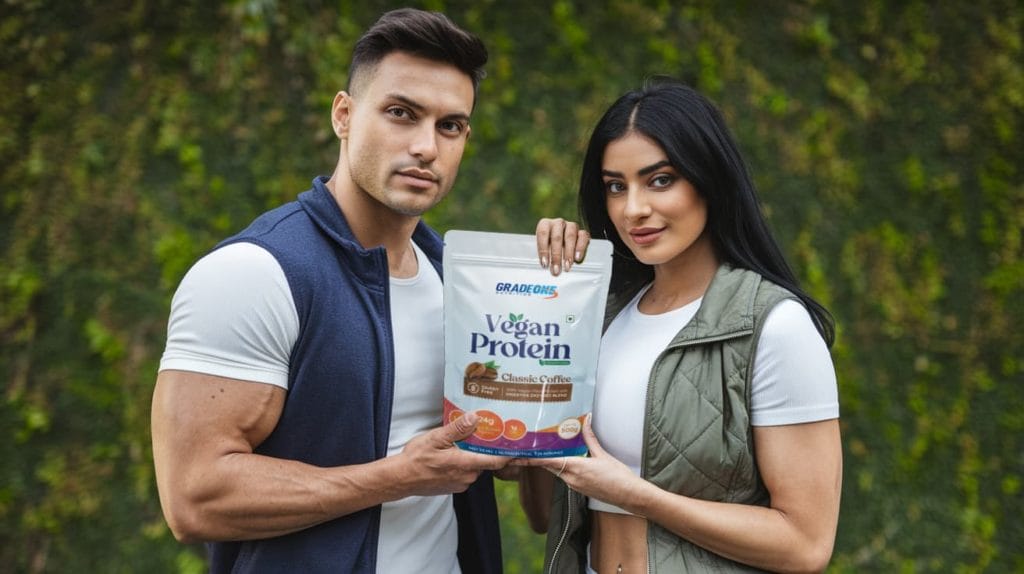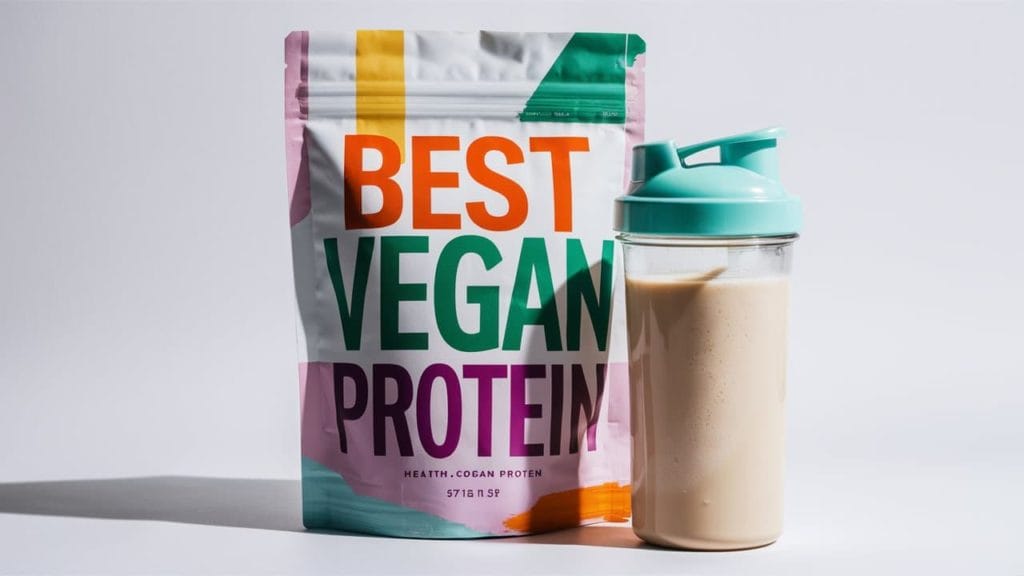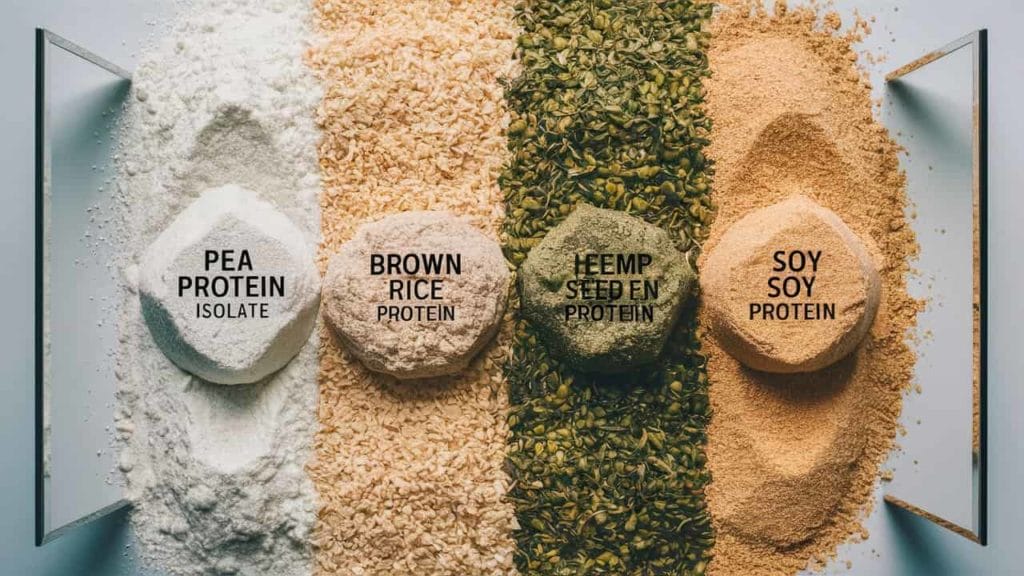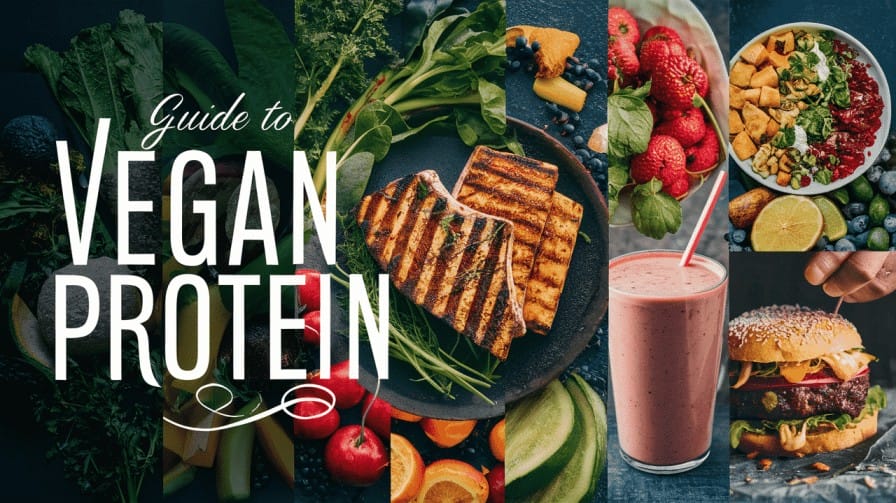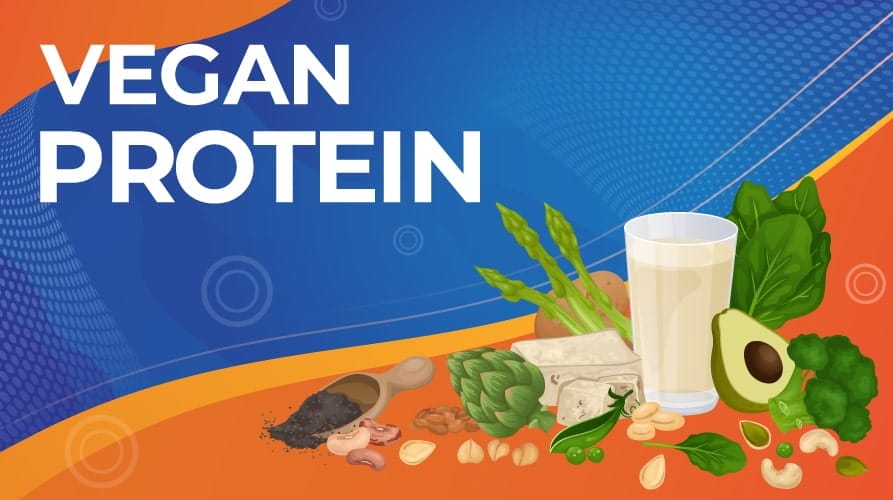Building muscle is often associated with consuming large amounts of animal-based proteins like chicken, eggs, and whey protein. However, with the rise of plant-based diets, more and more people are turning to vegan protein sources to achieve their muscle-building goals. Contrary to the myth that plant-based proteins are inferior, numerous studies and real-life examples demonstrate that you can effectively build muscle with vegan protein. This article explores how to use vegan protein to build muscle, the benefits of plant-based proteins, and tips for integrating them into your fitness routine.
Understanding Protein and Muscle Building
Protein is an essential macronutrient for muscle growth and repair. When you engage in resistance training or any form of strength exercise, your muscles experience tiny tears. Protein helps repair these microtears, leading to muscle growth (hypertrophy) over time. The body requires all nine essential amino acids to efficiently build muscle, which is why protein quality is crucial.
Why Vegan Protein is Effective for Muscle Building
- Complete Amino Acid Profiles:
- A common misconception is that vegan proteins are incomplete and therefore inferior. While it is true that not all plant proteins contain all nine essential amino acids, many do, including soy, quinoa, and hemp protein. Moreover, combining different plant-based proteins like rice and pea protein can create a complete amino acid profile, providing all the essential building blocks your body needs to build muscle.
- High Digestibility and Bioavailability:
- Vegan protein powders like pea protein and soy protein are highly digestible, meaning that your body can absorb and utilize them effectively. For example, pea protein has a digestibility rating of 89-94%, comparable to animal-based proteins. High bioavailability ensures that the protein you consume is efficiently used for muscle repair and growth.
- Rich in Nutrients and Antioxidants:
- Many plant-based protein sources come with additional health benefits. For example, hemp protein contains omega-3 fatty acids, which have anti-inflammatory properties that can help reduce muscle soreness and promote recovery. Similarly, plant proteins are often rich in fiber, vitamins, and minerals, contributing to overall health and supporting your muscle-building goals.
- Lower in Saturated Fat and Cholesterol:
- Vegan proteins are naturally low in saturated fat and free from cholesterol, making them heart-healthy. This is particularly beneficial for maintaining cardiovascular health, which is important for anyone engaged in regular physical activity.
How to Build Muscle with Vegan Protein
- Calculate Your Protein Needs:
- To build muscle, you generally need to consume more protein than the average dietary recommendation. Aim for 1.6 to 2.2 grams of protein per kilogram of body weight per day. For a 70 kg individual, this would be between 112 and 154 grams of protein daily.
- Choose High-Quality Vegan Protein Sources:
- Incorporate a variety of vegan protein sources into your diet to ensure you get all the essential amino acids. Excellent sources include:
- Pea Protein: Rich in BCAAs (especially leucine), which are crucial for muscle protein synthesis.
- Soy Protein: A complete protein with all nine essential amino acids.
- Hemp Protein: Contains omega-3 fatty acids and is also a complete protein.
- Brown Rice Protein: Often combined with pea protein to create a complete amino acid profile.
- Quinoa: A whole grain that is also a complete protein, rich in fiber and minerals.
- Incorporate a variety of vegan protein sources into your diet to ensure you get all the essential amino acids. Excellent sources include:
- Distribute Protein Intake Throughout the Day:
- Rather than consuming large amounts of protein in one sitting, spread your intake across multiple meals and snacks. This ensures a constant supply of amino acids to your muscles, promoting continuous repair and growth.
- Post-Workout Nutrition:
- Consuming protein within 30 minutes to an hour after your workout is crucial for muscle recovery. A post-workout shake made with vegan protein powder, such as a mix of pea and rice protein, combined with a carbohydrate source like a banana, can help replenish glycogen stores and initiate muscle repair.
- Combine Protein with Resistance Training:
- Protein alone won’t build muscle; it must be combined with regular resistance training. Focus on a well-rounded workout routine that includes compound movements like squats, deadlifts, and bench presses, targeting all major muscle groups.
- Supplement Wisely:
- In addition to protein powders, consider supplements like creatine (which is also available in vegan forms) and BCAAs to support muscle growth and recovery. Creatine is particularly effective in increasing strength and muscle mass when combined with resistance training.
- Monitor and Adjust Your Diet:
- Regularly assess your progress and adjust your diet as needed. If you’re not seeing the desired muscle growth, consider increasing your protein intake or fine-tuning your workout regimen.
Additional Tips for Success
- Stay Hydrated: Proper hydration is essential for optimal muscle function and recovery.
- Get Enough Sleep: Aim for 7-9 hours of sleep per night to support muscle repair and overall recovery.
- Manage Stress: High stress levels can lead to muscle breakdown and hinder recovery. Incorporate stress management techniques such as meditation or yoga into your routine.
Conclusion
Building muscle with vegan protein is not only possible but also comes with several health benefits. By choosing high-quality plant-based proteins, meeting your daily protein requirements, and combining your diet with an effective resistance training program, you can achieve your muscle-building goals on a vegan diet. The key is to ensure you’re getting a variety of protein sources to cover all essential amino acids, maintaining consistent training, and supporting your body’s recovery processes.
With dedication and the right approach, you can successfully build lean muscle and improve your overall health while following a vegan diet.
